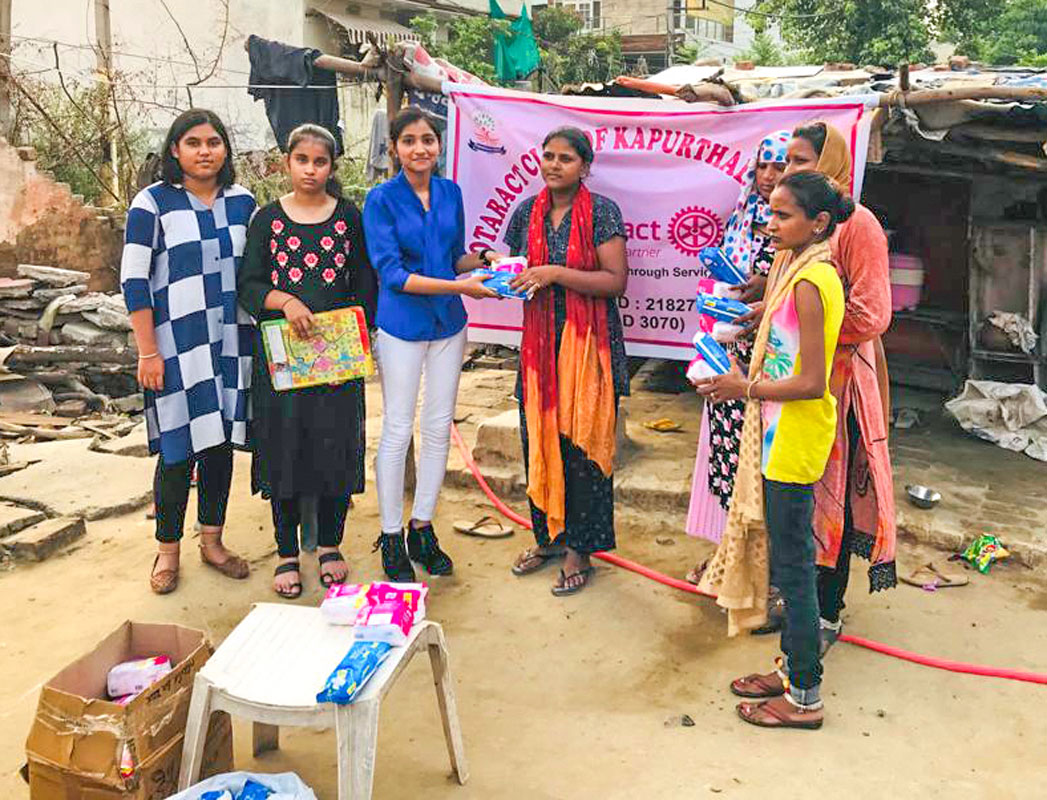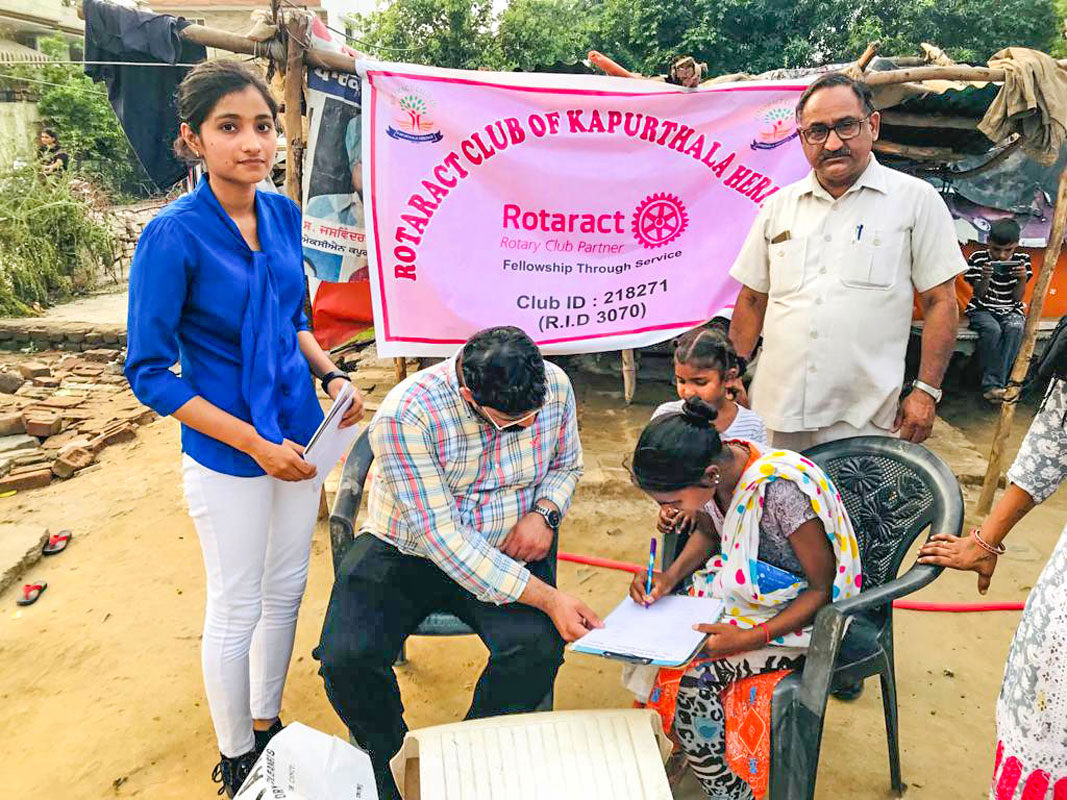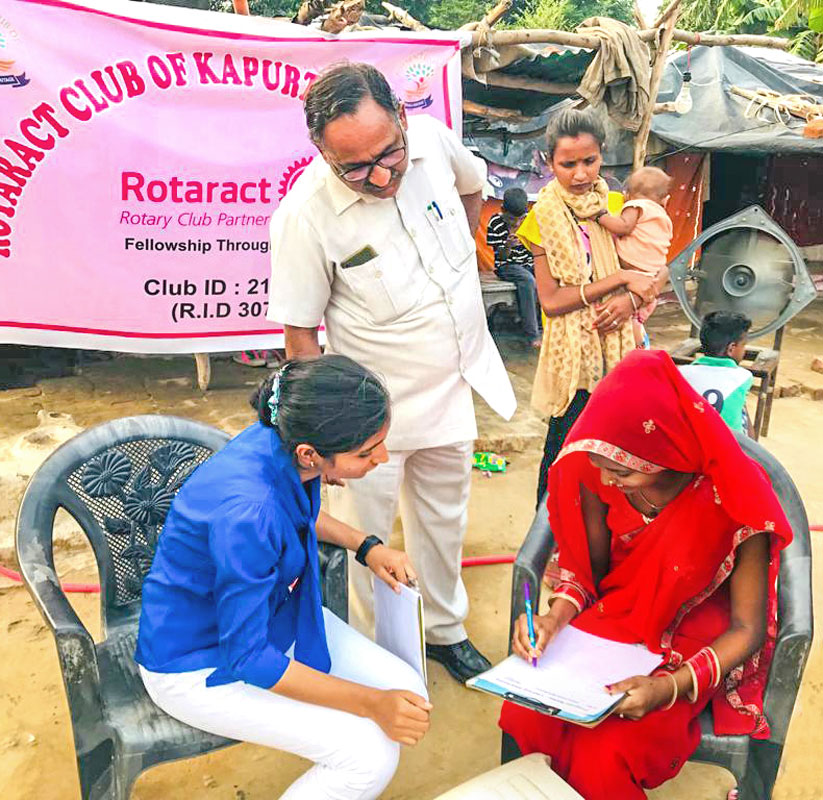Empowering slum dwellers through education

In an effort to uplift the slum dwellers of Kapurthala’s Golden Avenue, a one-day workshop was organised by RAC Kapurthala Heritage, RID 3070, to teach them to write their names and sign their own names. Initially met with reluctance, the organisers had an ingenious strategy up their sleeves. “We anticipated the hesitations and spread the word that participating women would receive sanitary napkins. In no time, we had over 50 enthusiastic female participants,” reveals Himpal Singh, the club president. She sees this as a learning experience for the Rotaractors, equipping them to handle unexpected challenges in their academic pursuits, careers and business ventures.
Named Nayi Soch Nayi Udaan (new outlook, new flight), this educational project aimed to empower adults and children residing in slum areas by equipping them with the ability to write their names in Hindi. “We emphasised the significance of individuality by encouraging the use of initials instead of thumb impressions,” explains Himpal.

The literacy programme encountered its fair share of obstacles. Educational resources such as books, stationery, and teaching aids were scarce in the slum area. However, the club dedicated its funds to ensuring the provision of adequate material.
A few community members, questioning the value and purpose of the programme. Undeterred, Himpal and her team persistently conveyed the importance of a signature. “We educated them that a thumb impression is often associated with illiteracy while learning to sign their own name would instil a sense of inclusion in society. We stressed that having something in common, such as being able to sign our names, can bridge gaps,” shares Himpal. The Rotaractors also highlighted the power of a signature in validating, authenticating, and establishing personal connections to documents or agreements bearing their names.
While the impact of this literacy programme in “enhancing access to education and empowering disadvantaged communities has been significant, its long-term success relies on support from regional Rotary and Rotaract clubs. Our clubs can contribute by mobilising resources, organising training initiatives, fostering community engagement, and nurturing partnerships. Together, we can create a more conducive learning environment for future programmes,” asserts Himpal, emphasising the need for a collaborative approach.
Keeping their promise, the Rotaractors distributed packets of sanitary napkins to the female members of the slum area. Complementing this, they conducted awareness sessions on menstrual hygiene, underlining the importance of proper care and promoting a healthier lifestyle.

